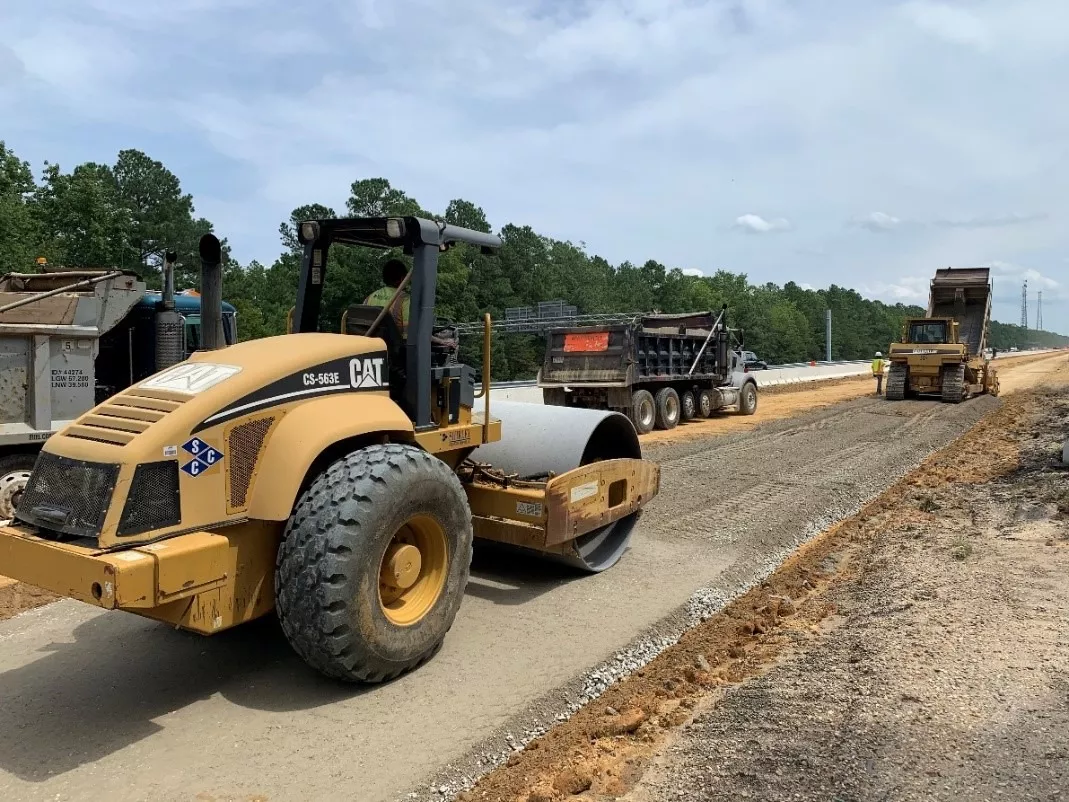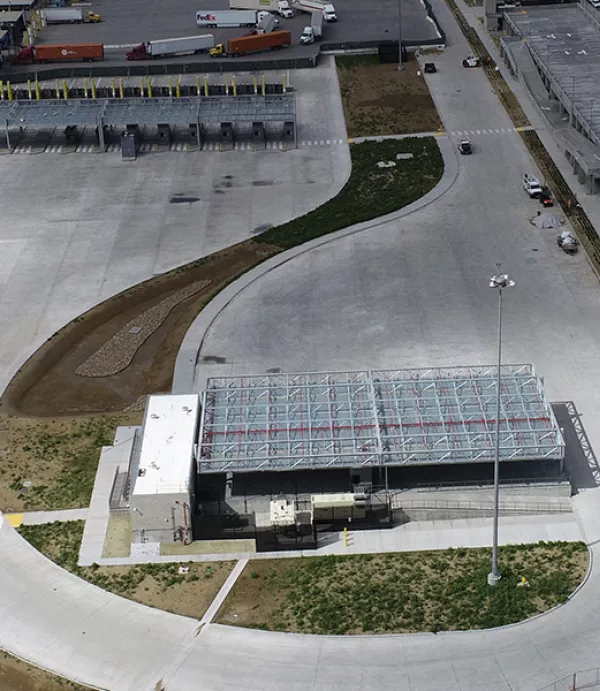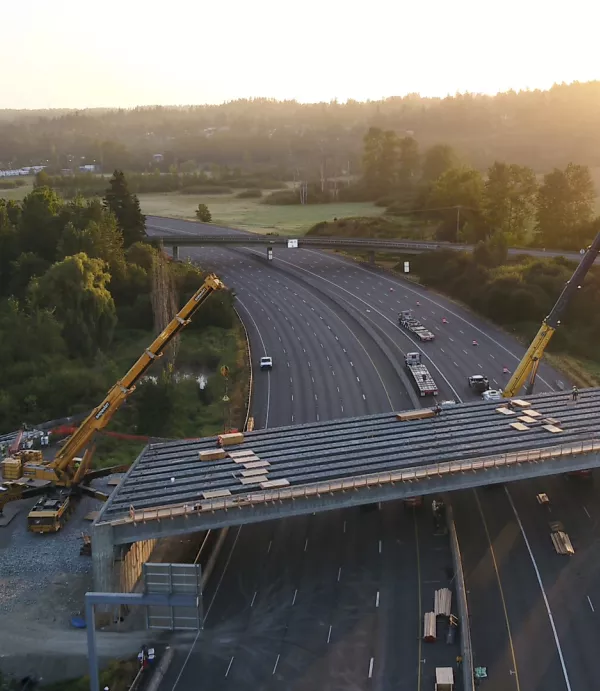Shirley Leverages Pavement Recycling on I-64 Improvements Project
January 11, 2022

Over the past three years, Shirley Contracting Company has leveraged sustainable processes and environmentally friendly materials to deliver the I-64 Capacity Improvements Segment III project in York County, Virginia, for the Virginia Department of Transportation ( VDOT).
The improvements project, which widens and rebuilds portions of I-64 to increase the interstate's capacity, represents one of the largest pavement recycling initiatives in North America. Upon completion, the project will consist of more than 200,000 tons of recycled material.
On the new pavement section of I-64, the project team lever-aged cold central plant recycling (CCPR), an innovative pavement preservation method that uses reclaimed asphalt pavement (RAP) from other regional construction projects. Unlike hot-mix asphalt commonly used on road construction projects, CCPR is produced without heat. During the CCPR process, RAP and fine stone aggregate are mixed at an off-site plant where the materials are bound together using foamed asphalt and cement. This CCPR mixture is dispensed into dump trucks and hauled to the project site where crews place the CCPR material on top of an open-graded drainage layer above the subbase layer.
The subbase layer for the widened portion of the roadway, including a new 12-foot-wide travel lane with a 12-foot-wide shoulder in each direction, consists of cement-treated crushed concrete. To create the recycled crushed concrete, the Shirley team demolished and hauled the existing concrete from the roadway to a nearby yard where it was processed through a crusher. The material was then hauled back to the job where it was placed by Shirley crews.
For the rebuilt lanes, the subbase was prepared using another notable recycling technique called full depth reclamation (FDR). As part of the FDR process, the existing pavement foundation is pulverized and mixed with cement onsite, and then recompacted into a subbase layer in the roadway.
During construction, researchers from the Virginia Department of Transportation installed sensors in the subbase layer of one of the travel lanes to measure and confirm the long-term performance of both the CCPR and FDR methods, with the goal of using these techniques on more state road projects.
The use of these sustainable techniques is proving advantageous both environmentally and economically. Beyond simply keeping asphalt out of landfills, these eco-friendly practices are also estimated to reduce green-house gas emissions by 50% and save VDOT more than $10 million in project costs. Construction for I-64 Capacity Improvements Segment III project is slated for early 2022.


